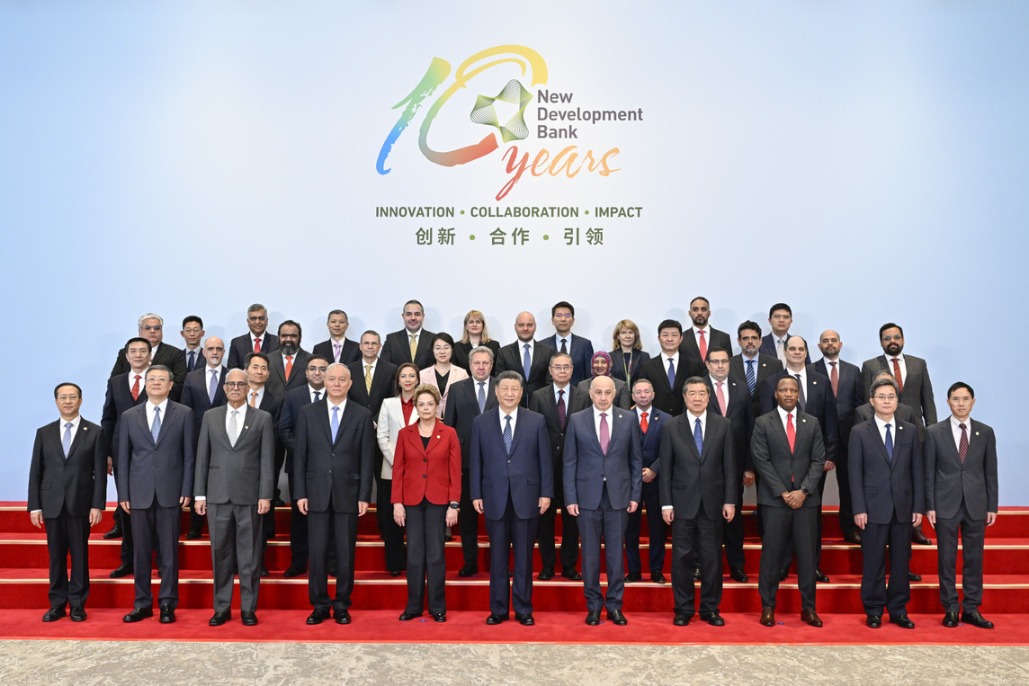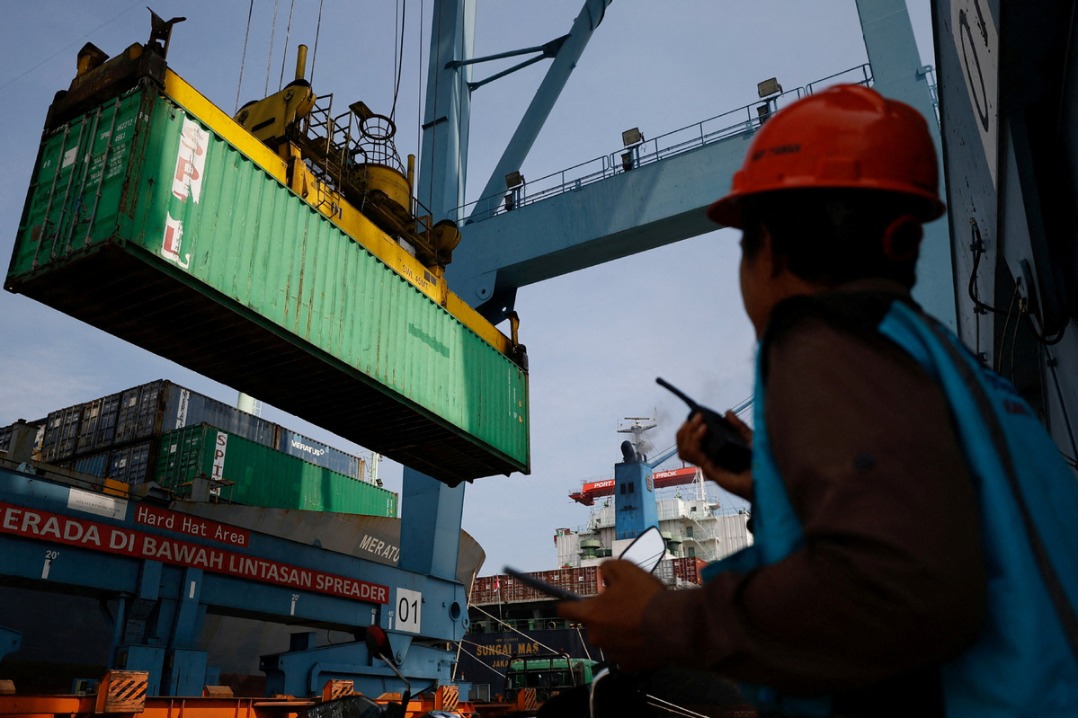Global growth recovery on track: IMF
Xinhua | Updated: 2017-07-25 07:12
KUALA LUMPUR - The pickup in global growth recovery remains on track, the International Monetary Fund (IMF) said in its latest World Economic Outlook (WEO) report on Monday, maintaining its previous forecast of global growth at 3.5 percent and 3.6 percent respectively for 2017 and 2018.
The unchanged global growth projections reflect different contributions at the country level, said the report. "The revisions reflect primarily the macroeconomic implications of changes in policy assumptions for the world's two largest economies, the United States and China," IMF said in the report.
China's growth forecast for 2017 was revised up by 0.1 percentage point to 6.7 percent from April, reflecting a strong first quarter and expectations of continued fiscal support. And an upward revision of 0.2 percentage point from April to 6.4 percent was forecasted in China's 2018 growth.
The growth forecast of the United States was revised down from 2.3 percent to 2.1 percent in 2017, and from 2.5 percent to 2.1 percent in 2018, primarily reflecting the assumption that fiscal policy will be less expansionary going forward than previously anticipated, said in the WEO.
Another country with lower growth forecast for 2017 is the United Kingdom with its weaker-than-expected activity in the first quarter.
By contrast, projections of most developed economies in the eurozone, Japan and Canada were revised up due to positive activity in late 2016 and early 2017, which helped maintain the 2 percent growth projection for advanced economies.
While the IMF posted a challenging outlook for growth in the Middle East and North Africa, solid performance in the first quarter of 2017 in China, India, Southeast Asia and Turkey led the IMF to forecast growth for emerging and developing economies at 4.6 percent in 2017, up from 4.3 percent in 2016.
The growth forecast for 2018 is 1.9 percent for advanced economies, 0.1 percentage point blew the April 2017 WEO while 4.8 percent for emerging and developing ones is maintained.
While risks around the global growth forecast appear broadly balanced in the near term, the IMF noted, they remain skewed to the downside over the medium term.
On the upside, the cyclical rebound could be stronger and more sustained in the eurozone, where political risk has diminished, it said.
On the downside, rich market valuations and very low volatility in an environment of high policy uncertainty raise the likelihood of a market correction, which could dampen growth and confidence, said in the WEO.
The IMF said policy choices will therefore be crucial in shaping the outlook and reducing the risk.
The report noted that monetary policy normalization in some advanced economies, notably the United States, could trigger a faster-than-anticipated tightening in global financial conditions.
Meanwhile, as most advanced economies face weak demand and extraordinarily low inflation, the IMF believes their monetary and fiscal support should continue.
As for emerging and developing countries, it opined that their monetary policies should normalize gradually, so that it can align with economic developments.
The IMF also warned that many emerging economies should monitor their financial stability risks closely. "They should continue to allow exchange rates to buffer shocks, wherever possible," it added.
























